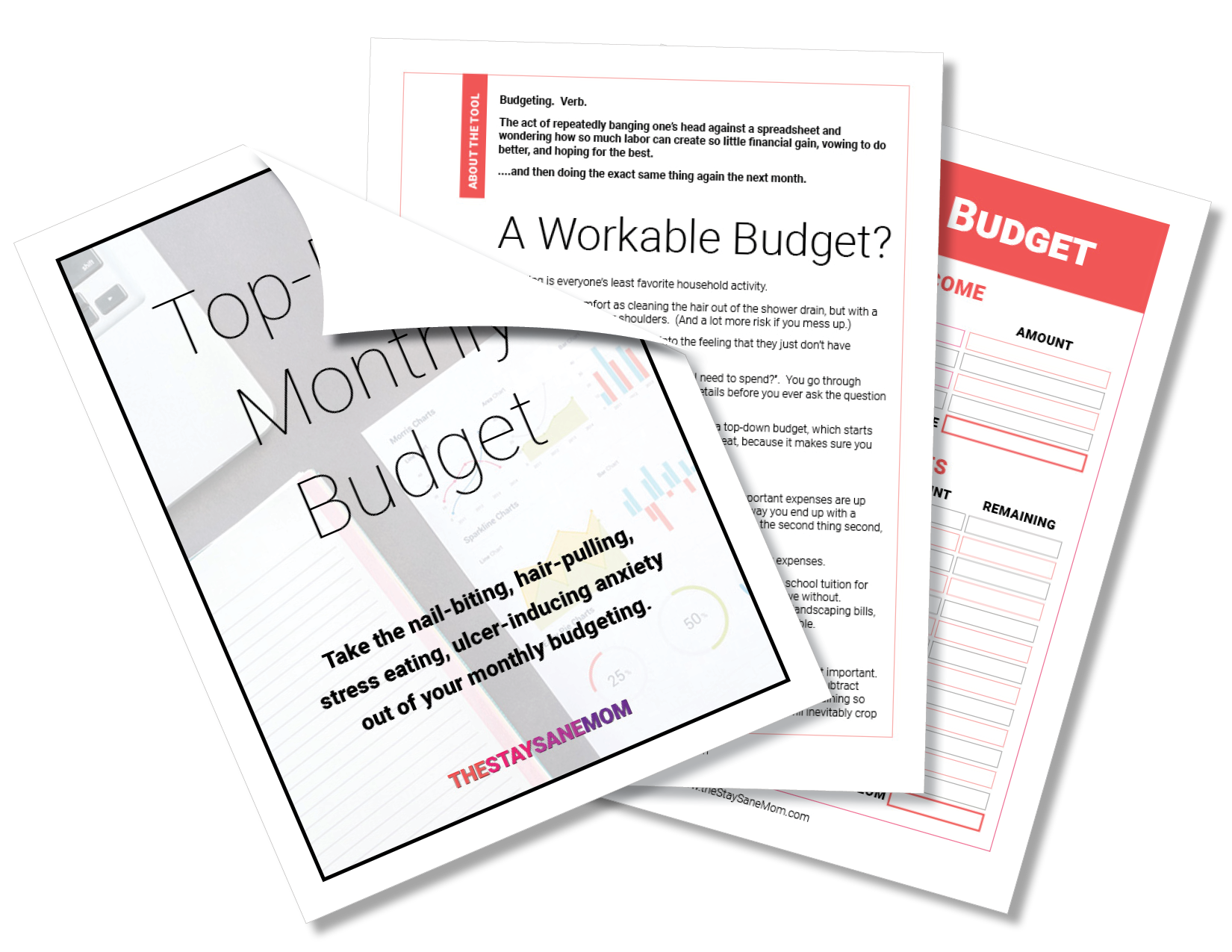Why Are We Going Over Budget...Again?

Why Are We Going Over Budget...Again?
Contents: 3 top mistakes that prevent you from hitting your budget, including my actual savings account plan for our family budgeting.
Written by Liz Bayardelle, PhD | See Comments | Updated 08/28/2019
Want to cut to the chase?
Failproof Monthly Budget

Why Are We Going Over Budget...Again?
This post contains some affiliate links for your convenience. Click here to read my full disclosure policy.
Ah, budgeting!
We all hate it. But at the same time, we all know that it’s the only way to manage our household finances effectively. Therefore, it’s not uncommon for families to design a strict overview of their income and expenses to keep track of what comes in and what goes out every week, month or year – depending on your preferred period.
However, sometimes life gets in the way, and the plan you’ve carefully prepared doesn’t quite work out the way it should.
You check your bank account and suddenly realize, with horror, that you’ve got over budget. Again. What happened? You were sure you had everything under control this time. You postpone your takeaway dinner until next week. Tonight, you’ll have leftovers. But you know that in the long term, you need to figure out where your budget is leaking before it drains your finances. Why have you overspent even though you had a budget plan?
There’s no easy answer to this question.
The best way to look at it is with total honesty. It’s possible that you splurged somewhere you shouldn’t have. However, It may not actually be reckless spending. Usually when you (and your family) are trying as hard as you can to make a budget...but you still don’t make the cut, it’s not because you’re being undisciplined. It’s usually because there is a strategic mistake somewhere in your budgeting plans.
Here are the 3 most common mistakes that drive your budget to the wall.
Mistake #1: You Don’t Have (Emergency) Savings
Last, but not least, you can’t tackle unexpected invoices if you don’t have an appropriate saving plan for your emergency funds. Without savings, the first little issue can throw your budget in the red!
So I’m a little manic about savings. A while back I discovered that I can create more linked-to-our-checking savings accounts online without having to go into the bank and talk to those real-life-walk-around people. (You know I try to avoid those at all costs, squirming toddler and whatnot.)
It was maybe 15 minutes after I made this discovery when we had an unusual amount of savings. Eight to be exact.
Here’s a brief overview of what we’ve got:
-
Checking Account
This is pretty standard. This account doesn’t generate interest, it just houses your money temporarily until you need it to pay bills. You shouldn’t keep money in here long term (longer than a month) because it doesn’t earn you anything. Hint: I keep a “floor” in this account to avoid overdrafts. Basically that means that I pretend I can’t go below $1,000 (or whatever number you decide on). It’s saved our necks numerous times and is a great practice. -
“Main” savings account
If you do have money for longer than a month, you should have an interest-bearing savings account into which you can transfer money (as often as you want) without generating transfer fees. This one doesn’t grow substantially over time, but is basically your checking account’s slightly-more-useful sister. -
Untouchable Savings Account
This one is like the creepy house in a horror movie: things go in, but they never leave. This is your long-term, touch it and die, leave it alone savings. We don’t put too much money in here on any given month (because once it goes in we’re not allowed to remove it if we actually needed it for bills), but a few hundred here or there when one of us has a good month at work and it’s actually growing nicely. -
Emergency Fund
This is the famed “emergency fund” recommended by the financial genius Dave Ramsey. In “baby step 3” of his amazing, can’t-recommend-it-highly-enough book, he recommends you generate a stash of money equivalent to three to six months of your income and hide it away in an interest-bearing savings account. This way if the house floods, if one of you loses your job, or some other financial tragedy occurs, you don’t have to go into debt to handle it. -
Yearly Expenses Escrow Account
This little life-saving majesty is a creation of my own, fully explained here and (as it just so happens) is also mistake #2 on this list. Scroll down for more info, but I’d say this is a must for literally everyone. -
Kids Savings Account
This one isn’t a “mandatory” account, but I like to keep things in neat little buckets. We throw money in here when we can and then if the kids have unpredictable splurge expenses (the planned ones come out of the yearly expenses savings account), we have a little cushion for them. -
Travel Savings Account
Again, this one isn’t mandatory, but it is one of the more fun accounts. (You know you’re adulting too hard when you have “fun accounts”.) Like the kids’ account, we throw money in here when we can (bonus season, unexpected monetary gifts at the holidays, etc.) and whenever it gets high enough to use we get to go on a guilt-free vacation. -
Real Estate Savings Account
Most of you probably know that hubby is a masterful realtor and investor (and quite a handsome fellow, if I do say so myself). This one is where we stash away money for him to use in his investments. Again, not a “typical” account for every family, but it could be for stock trading, buying bonds, or whatever other growth plans your family wants to pursue. Just make sure you have some way of making your extra money work for you...other than the piddly interest savings accounts generate.
While I don’t necessarily advise everyone gets a bajillion savings accounts, the first five I would say are absolutely mandatory for any family. Only by creating the proper savings structure do you avoid getting wiped out when an emergency situation comes out of the woodwork.
Mistake #2: You Forgot the One-Off Expenses
The first reason for going over budget is that you have forgotten to take some of your expenses into account.
Indeed, typically, preparing a budget includes considering recurring expenses, such as energy invoices and rent, and deducing them from your household income. The only problem with this approach is that it leaves one-off payments behind. The birthday presents for your kids, unexpected vet bills, or the housewarming gift for your friend that doesn’t appear in your simplified budget.
While it can be tricky to make room for one-off costs, you need to set aside an amount you want to dedicate every month to your one-time-only invoices.
If you think this is the mistake holding you back, check out this easy how-to guide for how to fix this common mistake.
Mistake #3: You Don’t Take Advantage of the Simple Things
Everyone has some way they’re good at saving.
Not all methods are good for everyone. You try to keep me from my french fry splurges and you have another thing coming (my fist in your face), but I’m perfectly happy not to clothes shop for months at a time. Just find the ways that work for you.
<gardening-related tangent>
For example, keeping your grocery shopping expenses low can be tricky. There might be weeks where you need to buy another bottle of milk because yours has gone sour in the fridge, or the vegetables you bought were rotten inside. But you can help to cut down your shopping bill by growing your own vegetables. Not only are you guaranteed to have flavorsome veggies, but, as a result, you’re less likely to use extra sauces and toppings.
Additionally, more often than not, families who introduce more veggies to their diet tend to gradually reduce their consumption of meat and fish, which has a positive impact on your shopping expenses. A last tip for amateur gardeners; if you don’t want to waste water, make sure to get a rainwater tank such as Clark Tanks models to harvest natural resources. This allows you to water your garden without spending a dime.
</gardening-related tangent>
Okay, that rant on gardening aside, you can find cool life hacks for saving everywhere. Maybe it’s couponing. Maybe it’s packing your own lunch instead of eating out.
Whatever you find, make sure you’re staying frugally-minded in some ways, even if you splurge in others.
The Big Picture
There’s no secret: Budgeting is a delicate art to master. While it can sound dull, once you get the hang of it and understand where you’re inadvertently leaking money, you can get a better grip on your household finances.
Start Your Next Step
Failproof Monthly Budget

Get Sanity, Delivered to Your Inbox.
Care to Share?
About the Author

Liz Bayardelle, PhD
Founder | Contributor
Liz (or Dr. Mommy, as her toddler started calling her after learning what a PhD was) is the happily sleep-deprived mom of a toddler (and professional raccoon noise impersonator), a sparkle-clad kidnado, a teenage stepdaughter, 200 cumulative pounds of dog, and herd of dustbunnies (if daily vacuuming doesn't occur). During nights and naptimes, she uses her PhD in business psychology as an author, speaker, and consultant. She also serves as an executive and principal for three companies, two of which she co-founded with her very patient (and equally exhausted) husband.





-Budget.jpg)